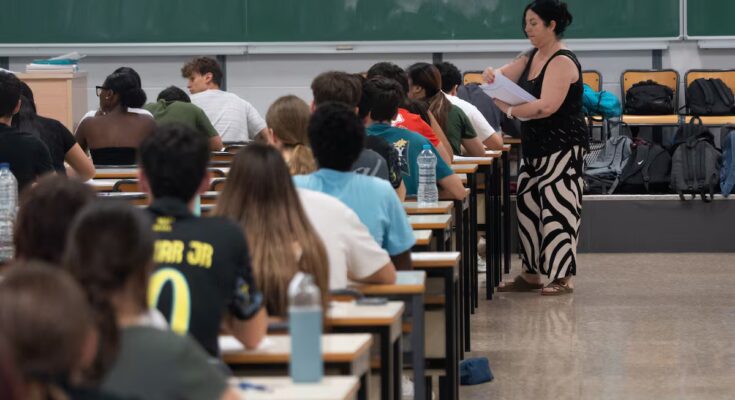In the Spanish public university we do not do what we can, but what we are allowed. It is not knowledge or skill that sets the limit, but the position you occupy. The institution has succeeded in transforming the administrative hierarchy into an intellectual destiny. The stones that fall on a few are not the result of chance: they are thrown by those occupying the roofs.
For years, associate professors have been told endlessly that they cannot do research, that they cannot participate in competitive projects, that they cannot aspire to receive six-year research contracts. Nor transfer, when the figures represent it as a society-university link. But above all he charges less because he “only teaches”. Only. A single that was used as a salary and symbolic border. But when it comes to recognizing and collecting the teaching merits – the five years – that “only” becomes a negation. Universities invite their associate professors to participate in teaching evaluations, with the promise of improving teaching quality. Evaluate, yes; give back, no.
The paradox ended up in court. The Social Section of the Court of Cassation, in ruling 748/2025, confirmed what any criterion of labor justice requires, namely that part-time, fixed-term or associate university professors have the right to both evaluation and compensation for five years of teaching under the same conditions as the rest of the professors. Without bias coefficients. No excuses.
The ruling, which ratifies a previous resolution of the Superior Court of Justice of Madrid, firmly declares that equality in the workplace is a principle that should have been the basis of the public university. Behind every five-year period there is a story of tired bodies, of nightly corrections, of tutoring against time, of lives that orbit around academic calendars without knowing if they will continue in class the following year. The fact that a court had to dictate the obvious demonstrates the extent to which inequality has been institutionalized in the public university.
The problem is not only legal, but structural. The problem is not only economic, but symbolic. Because denying teaching merit to associate professors is also a way of denying their belonging. The public university, which prides itself on being a space for critical thinking, reproduces within itself a stratification model that decides what everyone can do according to their own contract. In this logic, individual capabilities are worth less than administrative categories. Thus, an associate professor may teach the same subjects, grade the same papers, and serve the same students as his fellow government employee, but his work is worth three times less on the payroll and does not generate a single future entitlement.
The perverse thing is that all this happens while praising excellence and talking about the quality of teaching. Innovation, methodological updating and involvement with students are evaluated. Speeches are full of words like motivation OR social impact. But more than half of the university teaching staff – the associates – are denied the material translation of this recognition.
Every recognition obtained in the courts is not a corporate achievement,
In a recent letter to the Minister of Science, Innovation and University Diana Morant and to the president of the CRUE Eva Alcón, the associations of associate professors asked for the immediate application of the sentence and the end of other equally persistent discrimination: the unfair way in which bias is calculated, the impossibility of accessing six-year research periods, the denial of any academic career horizon. It’s not about privileges, but about fundamental labor rights.
Every recognition obtained in the courts is not a corporate achievement, but a reminder that justice, in the academic world, is still a foreign body.
The Supreme Court ruling has put an uncomfortable mirror in front of Spain’s public universities. What it reflects is not just a legal violation, but an ethical inconsistency. If universities preach equality, transparency and merit, they must apply it within their faculties. Not doing so means continuing to throw stones at those who support a large part of the university system with their daily teaching. Maybe one day it will stop raining on the same bodies. And then, finally, the public university will be able to raise its gaze without fear that its own justice will fall upon it again.



